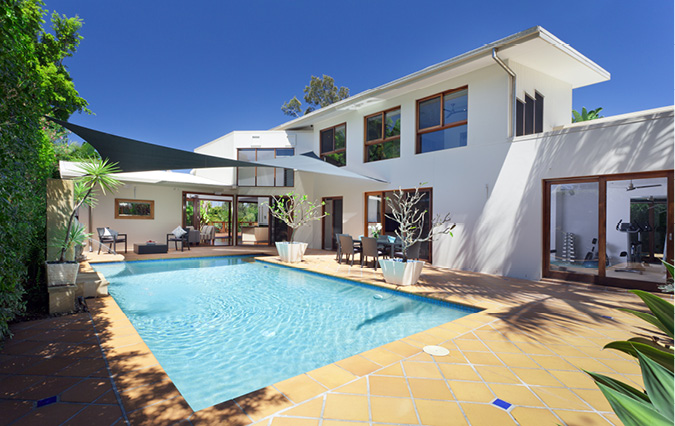Answers to your questions about your pool and home heating options
- Why do you base the size your heat pumps on my pool’s surface area and not its water volume?
- Why do I need to use a heat retention cover?
- What is the life expectancy of your heat pumps?
- Approximately how long is extended swim season?
- Is there efficiency loss in winter?
- What is the lowest air temperature Thermoplus Plus heat pumps can operate in?
- Does your unit have a de-ice control?
- What is wet-bulb air temperature?
- 1. Why do you base the size your heat pumps on my pool’s surface area and not its water volume?
-
The surface area of the pool is where most of the heat is lost. There can also be losses from other factors related to pool design and construction such as water tables, pool walls and insulation. Your heat pump maintains your pool’s temperature, which is based upon the rate of your pool’s heat loss.
- 2. Why do I need to use a heat retention cover?
-
A heat retention cover will reduce your running costs because it reduces your heat loss. If you wish to heat your pool without a cover you’re going to need a much larger heat pump to combat heat loss. If you’re unsure about sizing, give us a call.
- 3. What is the life expectancy of your heat pumps?
-
Our Thermoplus Plus™ heat pumps can last more than 20 years if carefully maintained and protected against the elements.
- 4. Approximately how long is extended swim season?
-
We consider extended season to be from September to April. That’s 8 months of the year. Weather patterns may cause this season to vary, but only marginally.
- 5. Is there efficiency loss in winter?
-
Yes. Air-source heat pumps draw their heat from the air. In winter their efficiency is reduced, as there is less heat in the ambient air. We take this into consideration when sizing your pump. But even in colder conditions our heat pumps are still more efficient compared to most other forms of heating.
- 6. What is the lowest air temperature Thermoplus Plus heat pumps can operate in?
-
Our heat pumps are rated to operate in air temperatures as low as -10 degrees Celsius.
- 7. Does your unit have a de-ice control?
-
Yes. We use an advanced de-ice system to quickly melt the ice on the coils so normal operation can resume. This is a feature that is standard with all our units.
- 8. What is wet-bulb air temperature?
-
Wet-bulb air temperature is what you feel when your skin is wet in the air. It can sometimes feel very cold and other times not too much cooler.
Think about when you get out of the ocean. The air can feel freezing till you are dry, even at over 20 degrees. This is because of low humidity. Wet-bulb air temperature is what refrigeration technology operates on. The higher the humidity, the better the unit performance. For this reason a heat pump will often produce condensation.

